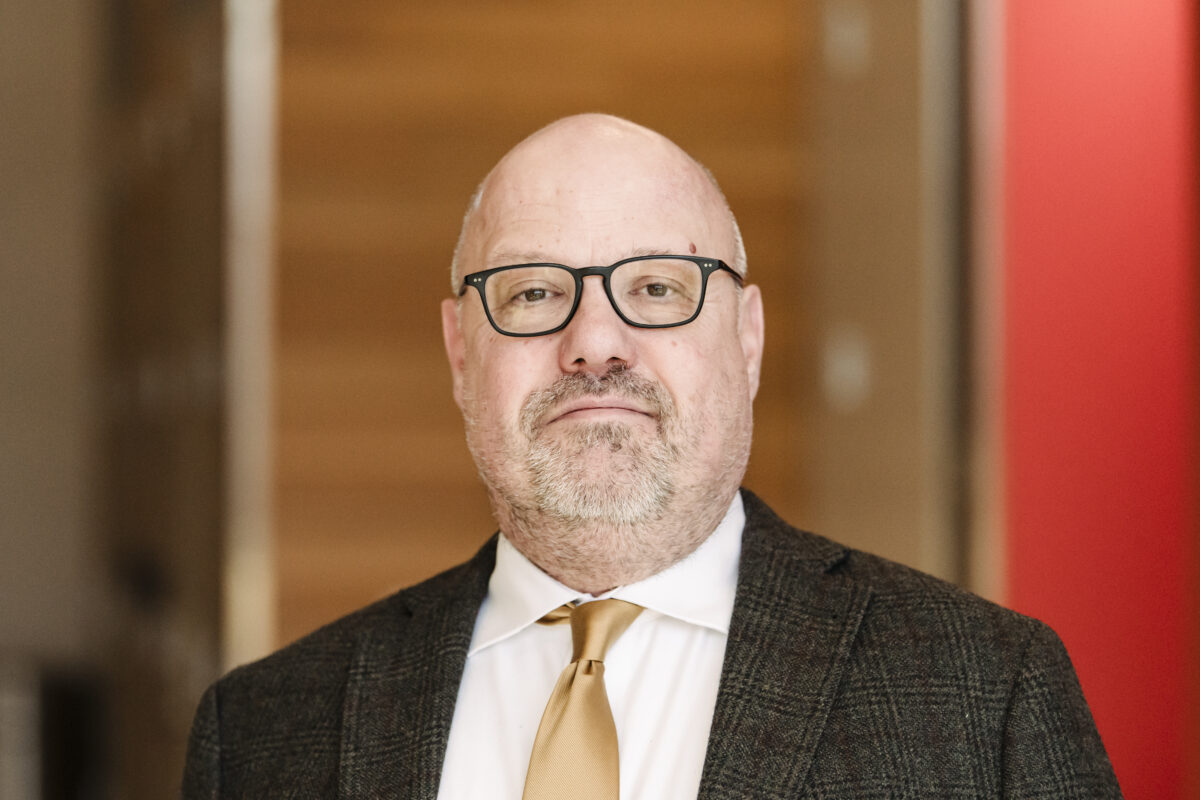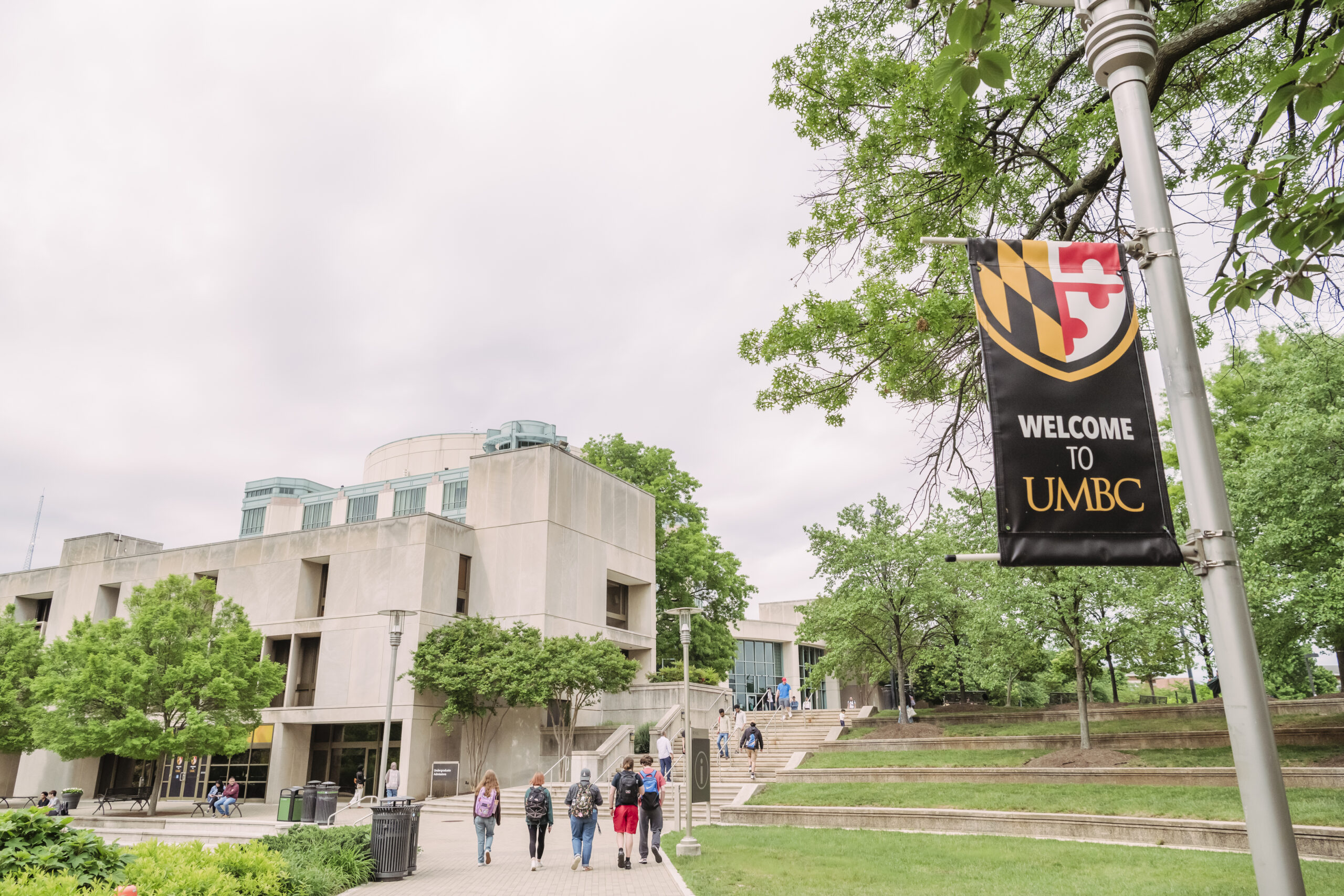On July 1, UMBC welcomed Manfred H. M. van Dulmen as our new provost and senior vice president. What is a provost exactly, and how does van Dulmen interpret his role on campus? He answered these questions and more in a Q&A as he took a break from moving into his new office on the 10th floor of the Administration Building.
Van Dulmen comes to UMBC after two decades at Kent State University in Ohio, where he has held many leadership positions including, most recently, senior associate provost and dean of the Graduate College. With an academic background in social, developmental, and adolescent psychology—increasingly focused on people in their twenties—van Dulmen brings a unique perspective to UMBC leadership that promises to further our campus commitment to student all-around well-being.
Q: What is the simplest way to describe the role of a provost at a university like UMBC?
A: The provost is responsible for overseeing the academic enterprise at an institution and providing the vision and mission for that academic enterprise. That’s the short answer. I think the longer answer is that the role of the provost at many universities has shifted significantly over the past 10 to 20 years. It’s become more inclusive of other tasks across the university, particularly for institutions that see academics as the center of campus. All other areas intersect with the academic areas, so the provost is somebody who develops close relationships with all other divisions on campus to really make sure that students can succeed.

Q: What drew you to UMBC?
A: UMBC’s legacy and reputation in higher education as a leader in inclusive excellence, particularly at the undergraduate level, certainly appealed to me. UMBC is known as an institution that has really led the country in how to do inclusive excellence well. I’m very passionate about access and inclusion and making sure that all students can succeed and that an institution is a place where faculty and staff can thrive. So, for me, this seemed like an incredible opportunity that I couldn’t pass up.
As I interviewed and had conversations with the search committee, faculty, and other stakeholders, it became increasingly clear to me that the people at UMBC are at the heart of all that UMBC does and does well. Also, I was drawn to the combination of being excellent in research and teaching, whereas I think at many institutions, it’s an either/or. A university that has demonstrated it can excel in both areas was really appealing to me.
Q: How do you think a provost can shape the academic experience for students?
A: A provost can have an impact by working with faculty, chairs, and deans to provide opportunities to innovate the curriculum to meet students where they are and also where faculty see that their fields are going. As provost, it’s important both to make sure that faculty can see what is possible and not focus on what the barriers are to innovation so that students have a curriculum that is exciting and innovative.
In terms of the student experience, a provost can have an impact by being an advocate of student success services and support that reflects best practices in the country. And there are many amazing people at UMBC who are involved in that work.
Q: How did your path in academia lead you to this point?
A: I’ve always been interested in and committed to service. One of the reasons I wanted to work in higher education was to improve the way that we live our lives and the communities where we live our lives. And as a psychologist, much of my work has really centered on why some people succeed while others struggle. Why do people succeed in the presence of great trauma or great challenges in life? I have increasingly focused on individuals in their twenties. So, for me, a university is a natural place to work in supporting student success.
“As I interviewed…it became increasingly clear to me that the people at UMBC are at the heart of all that UMBC does and does well.
Q: In what ways do your research and your fields of study specifically impact our current student population?
A: I think in every way possible it does. Even aside from the COVID-19 pandemic, the rates of mental health problems in the United States and many other countries have increased substantially over the past 20 years. We know that many behavioral health issues present themselves first in late teens and twenties. And so, helping students succeed and really think about their needs and where we can meet them is more important than ever.
At my previous institution, I was involved in developing the student mental health strategy, where we reallocated $2 million to better support the behavioral health needs of students, and we hired many more counselors to reduce waitlists on campus. We developed telehealth options that went well beyond what we previously had done. I’ve also learned that when we think about supporting students around their mental health needs, it means having community partners that you can work with when students’ needs go beyond what the university can provide.
Q: What excites you about working with UMBC’s faculty?
A: There’s so much exciting research going on and such a commitment to student success—I really want to continue to understand better what our current strengths are and how we can make sure that the world knows about all the great things happening at UMBC. I want to understand how we can further elevate the great work that’s already happening and make sure that faculty have the resources to continue to do their great research and be excellent teachers in the classroom.
But I also want to think how we can further elevate and be a leader in the country. Where are the United States and the world going to be 10, 15 years from now? And how can we help prepare our students for that new world?
Q: How do you see yourself supporting UMBC’s mission of academic and research excellence, inclusion, and community engagement?
A: I think by listening to faculty, staff, and students, while respecting the past and growing to understand the culture, I can help people see what’s possible while making sure there is room for everyone to have a voice and be heard.
Q: What’s your impression of the UMBC campus so far?
A: It’s very serene and calm. The combination of trees and buildings and space has a very good vibe about it. And I really like seeing and feeling the diversity of the student body when I walk around campus. You can just see how much people feel at home and feel connected, and that is really a warm and safe space that supports all members of the UMBC community to be successful.
Tags: Provost, Psychology, senior leadership

